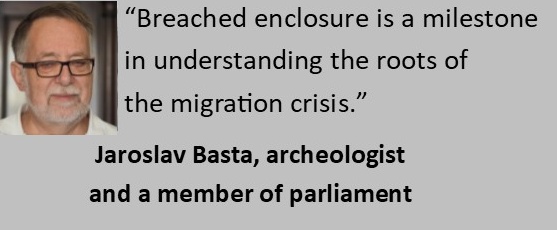Regardless of the differences in their positions, politicians and commentators who comment on current events have in common that they do not know what will come next. We fully share this expert opinion. In addition, however, many of them give the impression that they no longer have much recollection of what actually came before.
Today, everyone is talking about the fact that we are at a turning point, calling for necessary changes and radical reforms that require a fundamental reorientation. Such calls were heard in the Western world with comparable force after the Second World War. Its key word was ‘modernisation’. Back then, it meant building a strong welfare state with a robust public sector, striving for full employment, expanding citizens’ social rights and giving everyone access to ever more generous consumption. This first wave of modernisation carried social democracy into government seats in almost every country. At its peak, the wave nurtured visions of the emergence of a single, affluent middle-class society. On a global scale, the idea was to bring prosperity and accompanying democracy to Third World countries that were shedding colonial rule.
The rising prices of energy, fuel and food, which should perhaps be partly compensated at least for the poorest, will hit the middle classes, or what is left of them…
The first wave of modernization fizzled out within two decades. From the late 1970s and early 1980s, a second wave of modernization swept over it, bringing slogans just the opposite. The road to prosperity leads through a drastic reduction of the welfare state, privatisation of the public sector and deregulation of the market. The rigid security of the employment system is to be dynamised by the flexibilization of the workforce. The second wave has brought neoliberal parties to the forefront of politics. While their prescriptions for modernisation were the opposite of those of the previous wave, they were intended to serve the same goal – the growth of prosperity, freedom and democracy for all. The third world countries were not forgotten. Their involvement in economic globalisation was to guarantee their rapid growth and prosperity. The second wave of modernisation also fizzled out in the two decades or so after 2000.
In the context of what is happening around covid, in the context of the debates about the European Green Destiny project, and in the context of the news from the fighting in Ukraine, it is easy to miss that we have already entered the third wave of modernisation. Once again, we are at the front line, with calls for necessary changes and radical reforms that require a fundamental reorientation. While the first wave was carried by an ethos of social responsibility and the second wave was about economic efficiency, this third wave appeals to the highest moral values and to responsibility towards nature. It is true that both waves have completely underestimated the ecological dimension of ‘doing prosperity’. However, one cannot help feeling that the way in which the proposed remedy is being applied is somewhat unfortunate. It would be worth a long discussion as to how far green ideology, in its present top-down form, can stop the damage to the natural environment. However, it is quite reliably capable of wiping out all the benefits of the first wave of modernisation. The rising prices of energy, fuel and food, which should perhaps be partly compensated at least for the poorest, will hit the middle classes, or what is left of them after the second wave of modernisation, with full force. The programmatic proliferation of sanctions is destroying the strategy of the second wave of modernisation with equal reliability. The right’s talk of an unregulated market and the benefits of globalisation is as hollow today as the left’s earlier promises to guarantee social security.
In the hands of those who appeal to sensitivity to nature and to the highest moral values, the core of modernisation is shifting to investment in armies and armaments.
With the socialists and the real right out of the picture, the third wave is bringing the so-called progressives to the top of politics. Their comparative advantage over the classical right and left is that they can pass off even unmistakable signs of regression as signs of progress. In the hands of those who appeal to sensitivity to nature and to the highest moral values, the core of modernisation is shifting to investment in armies and armaments. The third world countries are not forgotten either. The first wave wanted to bring them democracy, the second wave promised them a share in global prosperity. The third wave offers a transfer of populations from countries that have neither been democratised nor economically prosperous to an insecure Europe. The adage that ‘progress cannot be stopped’ thus takes on somewhat worrying dimensions.
Jan Keller is a Czech professor of sociology


